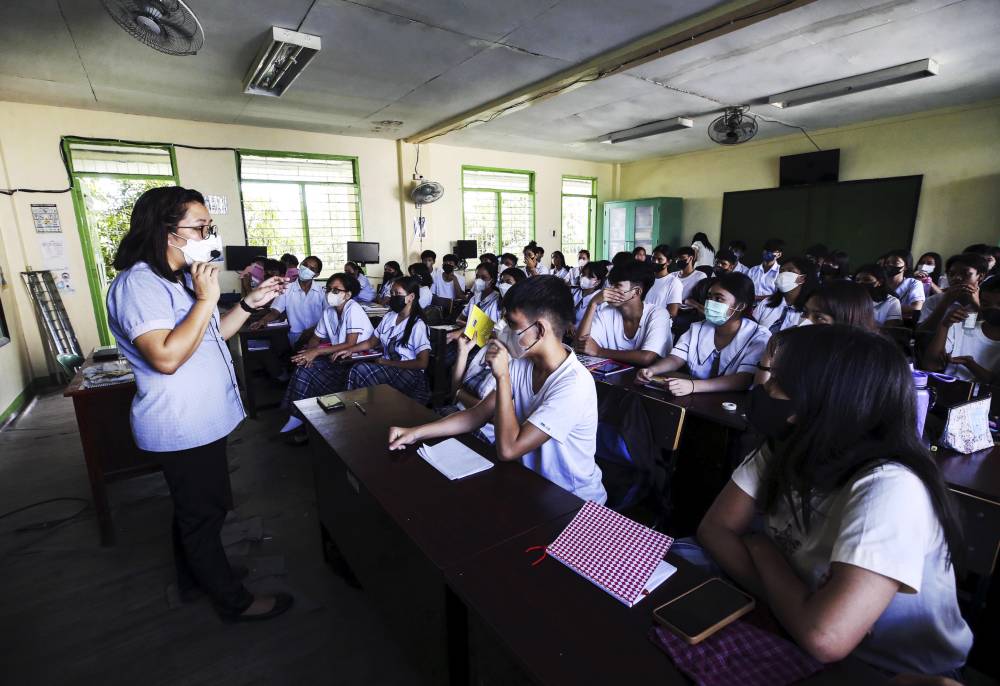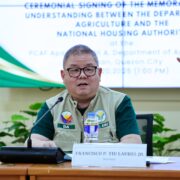Bridging the education-employment divide

With the future of work rapidly evolving, how can we ensure our schools are not just keeping up but leading the way?
As the business world continues to undergo seismic shifts brought on by the consistent emergence of automation, AI and evolving global markets, one question continues to loom large:
Is our education system keeping pace?
The Philippines, with its young and dynamic population, stands at a critical inflection point.
And although we are producing promising graduates in record numbers, many are struggling to find and secure employment.
Why?
It’s simply because the demands of the modern workforce are consistently evolving, necessitating that the current traditional pathway of the education system to employment adapt and become more flexible.
Therefore, decisive intervention and profound transformation are now imperative.
Education-workforce divide
In July 2024, fresh graduates made up an alarming 43 percent of the total unemployed population.
While education access has expanded, the quality and alignment of learning outcomes with labor market needs continue to lag behind.
Curricula at both basic and higher education levels remain constrained by legacy content and outdated frameworks.
Though reforms such as the Department of Education’s planned senior high school curriculum revision are in motion, they often trail far behind the pace of industry transformation.
Employers are responding with growing concern.
Research from the Philippine Institute for Development Studies shows that many organizations hesitate to hire Senior High School graduates unless under very specific roles.
Meanwhile, college graduates frequently lack capabilities in critical domains like software development, cybersecurity, data analytics and machine learning—skills essential to a digitally driven economy.
Soft skills are also in short supply. Adaptability, collaboration and critical thinking; qualities that power innovation and resilience are not consistently developed within formal education systems.
Lifelong learning
The rigidity of traditional education pathways is giving way to more agile models of learning.
Digital short courses, microcredentials and online boot camps are emerging as scalable, affordable alternatives to reskill and upskill both new entrants and existing professionals.
In the Philippines, institutions and organizations are beginning to embrace this shift.
Programs such as Tesda’s Training for Work Scholarship Program (TWSP) and Special Training for Employment Program (STEP), have empowered thousands to gain job-ready credentials in high-growth sectors, accelerating both learning and employability.
Globally, several innovative models offer valuable insights.
For example, Singapore’s SkillsFuture initiative promotes lifelong learning by offering financial support for skills development at any career stage. Similarly, Germany’s dual training system combines classroom instruction with real-world apprenticeships, ensuring students are equipped with relevant industry experience from the outset.
To build a workforce that thrives amid constant change, the Philippines must adopt a similar mindset—one that embraces flexibility, prioritizes relevant skills and fosters continuous learning.
Final thoughts
It’s no longer enough for education to simply prepare students for their first job—it must equip them for a lifetime of change.
The persistent mismatch between academic output and labor market needs reflects a systemic issue that cannot be solved by minor curriculum tweaks alone.
What’s needed is a shift in mindset: one that views skills development as an evolving process, not a one-time destination.
To remain globally competitive, our country must commit to reengineering its education-to-employment pipeline.
This means making learning more relevant, more adaptable and more closely tied to the realities of today’s digital economy.
Only then can we unlock the full potential of our workforce and close the education-employment divide once and for all.
In pursuit of a collective response to the evolving yet fragmented state of our education and training systems, the National Skills Summit 2025, hosted by Viventis Search Asia, takes center stage.
Taking place on June 5, 2025, at the Isla Ballroom, Edsa Shangri-La, the summit brings together education leaders, industry innovators, government policymakers and training providers to spark a unified movement: to reimagine learning systems and build a workforce truly ready for the future.
By bridging gaps across sectors, the summit aims to cocreate an integrated, future-ready talent ecosystem—one that places the Filipino workforce not just at par, but ahead, on the global stage.
We can no longer afford to let outdated systems determine our future. Building resilient, agile and relevant education and training ecosystems is not just a policy issue; it’s a national imperative.
The path forward lies in rethinking learning as a lifelong journey, powered by industry collaboration, digital innovation and a shared commitment to closing the education-employment divide.





















Mangroves matter